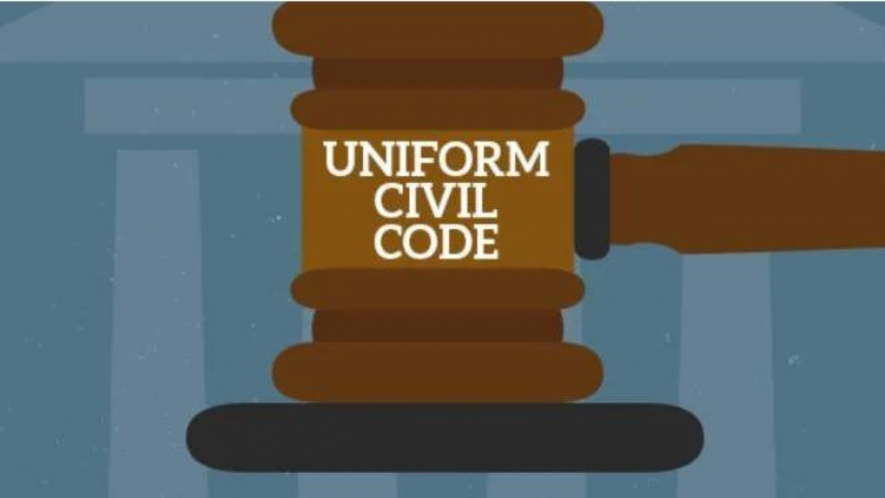BJP’s Thrust on Uniformity Will Create Backlash it Cannot Control: Sanjay Hegde

The Bharatiya Janata Party (BJP) government’s renewed push for a Uniform Civil Code (UCC) and next year’s Lok Sabha election are just nine months apart. Is the government in haste because of the political stakes, or is this an ideological pursuit? What is the history of the demand for a uniform code, and who wants it the most? Can India pursue ‘uniformity’ in laws without caring for a sense of justice or diversity—and what could be the fallout if it does? Sanjay Hegde, Senior Advocate, Supreme Court of India, and a noted expert on the Constitution of India, discusses these and other concerns about the UCC with independent journalist Rashme Sehgal. Edited excerpts:
Sanjay Hegde
Rashme Sehgal: What do you think about the timing of this push for a UCC, just nine months before the general election?
Sanjay Hegde: The UCC is a deeply ideological issue for the BJP. Two of their three main concerns, Article 370 and the Ram temple, have been pushed through. Now it is time to complete their electoral promise by introducing the UCC. What format it will have remains a question mark. For the present, it remains a hashtag or a slogan. Will it mean taking what applies to 80% of the population, that is, the imposition of the Hindu Code Bills on the non-Hindu population? The objective being to let the remaining 20% of the Indian population follow Hindu majoritarianism—is that their idea of uniformity? [The Hindu Code Bill was laws passed in the 1950s dealing with marriage, adoption, inheritance and maintenance.]
Or will the UCC be a synthesis, a collection of the best practices of all religions, which then develops into a draft that synthesises all these different strands? That would not be an exercise in majoritarianism.
RS: At the conceptual level, is a uniform law for people belonging to different religions and cultural backgrounds desirable?
SH: Indeed, the question to ask is whether uniformity is desirable in a country with so much diversity. When we got our Constitution, there was no Hindu Code Bill. At that time, women did not have the right to divorce. When the Congress led by [first prime minister Jawaharlal] Nehru codified and reformed several religious laws in favour of a common law code, it was strongly opposed by the Hindu Mahasabha and Jana Sangh. It was said Nehru had brought in these laws to allow [his daughter] Indira Gandhi to get a divorce.
Nevertheless, this [reforms in Hindu customary laws] has been an ongoing process for the past 70 years and, to cite one example, it took a later judgement of the Supreme Court to ensure daughters get an equal right to property.
We must keep in mind that at the time of Independence, India was still dealing with the fallout of Partition and still uncertain in its relationship with the Muslims who remained in India. For example, the Jamiat Ulama-e-Hind uncompromisingly opposed Muhammed Ali Jinnah [founder of Pakistan] and the Partition of India. The Jamiat believed the Indian Constitution was a ‘holy compact’. They also believed that Muslims would abide by the Constitution as long as personal laws were protected.
In a 1951 judgement, Justices MC Chagla and PB Gajendragadkar of the Bombay High Court ruled in State of Bombay vs Narasu Appa Mali that personal laws are outside the ambit of judicial scrutiny under Article 13. That is why, even today, when the Constitution speaks of equal implementation of laws, it did not speak of personal laws. That position has prevailed until now. Now if we have one law for everyone, it will go against the understanding of the Constitution, as it has prevailed for the last 70 years.
RS: Could you elaborate the concept of uniformity as it applies in the area of civil laws?
SH: For Hindus, even in something as important as marriage, there is no uniformity about either the mode of marriage or the marriageability of individuals. In North India, Hindus do not marry their cousins. In South Indian communities, Hindus can marry cousins on their maternal side but not on the paternal side. This is because maternal cousins belong to different genetic pools.
In some communities, a maternal uncle can marry his niece. Such cases are pretty common—my maternal grandparents were first cousins. This is the practice even today, which exists for a number of reasons. One is to keep property within the family or because the bride and bridegroom are well-known, which contributes to the stability of a marriage. Such a marriage may be deemed incestuous in North India, where, in some cases, a man and a woman from the same village cannot get married. There is no one concept of marriageability which is common across India. Thus, there is no homogeneity even amongst all Hindus.
RS: Political parties are speaking out against UCC. What do you think is the prime reason?
SH: The All India Anna Dravida Munnetra Kazhagam [AIADMK, an ally of the BJP in Tamil Nadu] has stated openly that it opposes a UCC. While the Aam Aadmi Party’s central unit has said that the UCC is a good idea, Punjab Chief Minister Bhagwant Mann has come out against it and declared it not a good idea—the Sikh community is apprehensive that their customs will get lost under the UCC.
Again, the concern is that no one concept of marriage is common throughout India. For Hindus, saptapadi, or seven steps, are the only form of marriage, but other communities do not feel the same way. The Sikh community wants to know what will happen to the Anand Marriage Act. They are apprehensive that they will lose their rights.
The other question being asked is whether the UCC will provide a mechanism for the registration of marriages. However, actual uniformity in the modes of marriage cannot be attained through a UCC. This thrust towards uniformity will create a backlash which cannot be controlled. We must not forget how Jinnah said in 1948 that the state language of Pakistan would be Urdu. This was opposed by students of the University of Dhaka, and that laid the seeds for 1971 [Bangladesh liberation war culminating in the then East Pakistan declaring independence].
The UCC is an article of faith as far as this government is concerned. But Muslim, Christian or other communities have not expressed the need for uniformity. The current push for Hindi-Hindu-Hindustan attempts to create congruence between national and linguistic identities [seeks] to curb diversity and increase homogeneity.
RS: The adivasi communities are unhappy with the UCC as they, too, have customary practices.
SH: Yes, there has been a strong reaction against the UCC from the Northeast and Chhattisgarh. Jharkhand has not, so far, spoken.
RS: How do you see this issue unfold in the days to come?
SH: I suspect that a draft of a UCC will be released and then referred to a parliamentary committee. This draft will be a campaign flashpoint for the BJP, and the Bill on this can be brought in 2024.
The other alternative [for the government] is to hold a few consultations after making the draft public. The nature of these consultations would hardly be seen as serious. The government could well ram the draft through [Parliament] and then go to the people. The consultation will not be serious, but the BJP will be in a position to tell its followers that it has done the three things it promised—Article 370, Ram temple, and now, UCC. Modi likes a full and sudden strike, and that is what I suspect he will go for.
But I also suspect it [the government] could well have prepared a draft on the UCC already. The entire Article 370 exercise, as insiders told me, was done much earlier. The emphasis on having a UCC during the state elections in Uttarakhand and Gujarat was like releasing trial balloons to show that individual states can have their versions of the UCC. The Uttarakhand draft is ready but has not been placed in the public domain. It has yet to be formally submitted.
RS: Why do you think the draft has not been made public so far?
SH: The government is waiting to see what the public reaction to the UCC will be. Will the unhappiness of some communities benefit the BJP by getting them more votes? They are hoping to see the Muslims start protesting. The Muslim leaders have played smart. Their traditional leaders have chosen to keep quiet though they will bring in Asaduddin Owaisi, who heads the All India Majlis-e-Ittehadul Muslimeen, to present their viewpoint.
Let us not forget that political analysts and several leaders had said that the revocation of Article 370 would see Kashmir go up in flames, but the Modi government managed to quell discontent and social unrest. The Northeast states oppose the UCC and have come out against it. The Northeast comprises a dominant Christian population, and it would make sense to come up with a draft that satisfies all sections of society.
RS: Is it curious that the UCC does not seem to be supported by any competent legislative approach within or outside the government?
SH: A government must possess either internal talent or else go for external talent. They do not have too much of either resource. Currently, they are election winners but not great administrators. Modi is useful to the BJP for pulling in the votes. He is a vote-catcher. These three things [Ram temple, revocation of Article 370 and UCC] are an article of faith for the BJP, and Modi has grown up steeped in the RSS (Rashtriya Swayamsevak Sangh) ideology. He has grown up believing this ideology and fully subscribes to it.
Get the latest reports & analysis with people's perspective on Protests, movements & deep analytical videos, discussions of the current affairs in your Telegram app. Subscribe to NewsClick's Telegram channel & get Real-Time updates on stories, as they get published on our website.
























